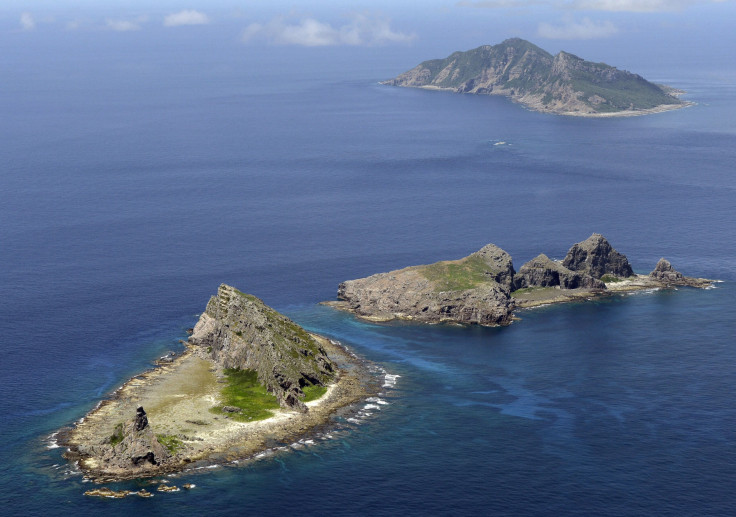Japan Coast Guard Spots Chinese Ships Near Disputed Senkaku Islands

An armed Chinese government vessel along with two other ships entered Japan’s territorial waters Saturday morning, a Japanese coast guard official reportedly said. This is the second time a Chinese ship has been spotted in the area this week.
The disputed territories in the East China Sea known as Senkaku in Japanese and Diaoyu in Chinese are claimed by both countries and the conflict has snowballed into a massive diplomatic issue between the two. Ships from both nations have been tailing one another in the area since Japan bought three of the uninhabited islands from a private owner in 2012.
The vessels approached waters north of one of the disputed islands, the Kuba Island, from around 8:19 a.m., local time, (7:19 p.m. Friday EST) on Saturday. The vessels entered Japanese territorial waters starting from 9:30 a.m. (8:30 p.m. Friday EST) and left by 10:50 a.m. (9:50 p.m. Friday EST), the Japanese coast guard reportedly said.
The armed vessel was the same one that the coast guard reported on Tuesday as sailing in waters 28 kilometers (17 miles) east-north-east of one of the islands, the anonymous official told Bloomberg.
According to Kyodo News, when the Japanese coast guard asked the Chinese ships to leave its territorial waters Saturday, the Chinese responded by saying that the Japanese vessel was in Chinese waters and should leave immediately.
One of the vessels on Saturday was armed with an autocannon, Kyodo News reported, citing the 11th Regional Coast Guard headquarters based in Naha, Okinawa Prefecture, Japan.
Meanwhile, Japan’s cabinet approved a record defense bill Thursday amid China’s increasingly aggressive stance in the South China Sea region. While Prime Minister Shinzo Abe has denied that Japan would participate in U.S. military exercises in the region, his continued support for freedom of navigation has been a thorn in the relations with China.
© Copyright IBTimes 2025. All rights reserved.





















